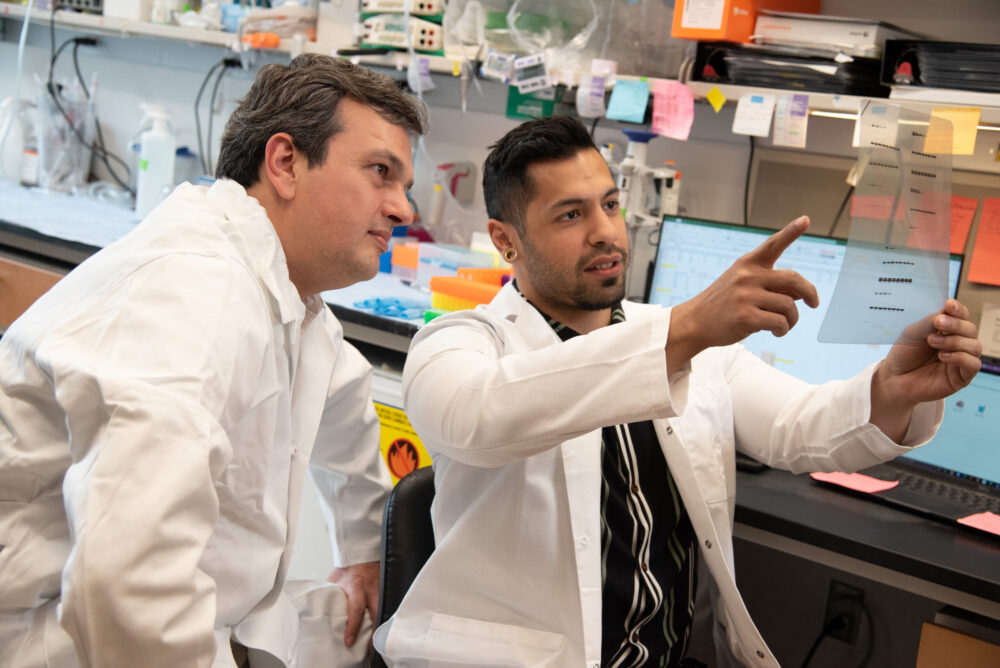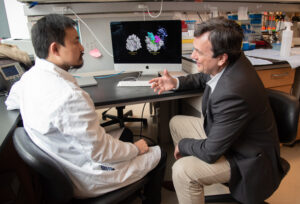Piro Lito, MD, PhD ‹ Back To 2022 Winners
2022 Winners
Associate Member
Medical Oncology
Memorial Sloan Kettering Cancer Center
Vision
Our vision is to understand the properties of oncoproteins that drive cancer cell growth: how are they activated, mechanisms leading to their dysregulation and their effect on the behavior of cancer cells. To answer these questions we utilize small molecule inhibitors coupled with biochemical and genetic approaches in patient-derived cell line or xenograft model systems. We aim to provide insight into the fundamental processes that govern tumor biology and to identify therapeutic interventions that will prolong survival and improve the quality of life in patients with cancer.
Piro Lito, MD PhD is a physician-scientist at Memorial Sloan Kettering Cancer Center in New York. After receiving an MD-PhD degree from Michigan State University, he trained in Internal Medicine at the Beth Israel Deaconess Medical Center at Harvard Medical School and in Medical Oncology at Memorial Sloan Kettering Cancer Center. He studies signaling pathways that regulate cancer growth with an emphasis on understanding and treating cancers driven by mutant KRAS. He found that KRAS oncoproteins undergo nucleotide cycling in cancer cells, a property that renders it susceptible to drugs that target its inactive state and prevent reactivation by nucleotide exchange. Dr. Lito co-led the first-in-human clinical trial of a KRAS inhibitor, work that paved the way for the FDA approval of the inhibitor sotorasib for the treatment of patients with lung cancer. He then went on to identify how cancer cells adapt to therapy and genetic alterations leading to acquired resistance in patients. His work has been recognized with the Pew-Stewart Scholar in Cancer Research and the Damon Runyon Clinical Investigator awards. He is the recipient of the Seldin-Smith Award for Pioneering Research by the American Society for Clinical Investigation and the Trailblazer Prize for Clinician Scientists by the Foundation of the National Institutes of Health.
KRAS Oncoprotein Inactivation Through Enhanced GTPase Activity
 Understanding how cancer-causing proteins operate is key for effective cancer therapy. RAS GTPases are small enzymes that break down the nucleotide guanosine triphosphate (GTP) to guanosine diphosphate (GDP). In doing so they act as an ‘on’/‘off’ switch to control a number of cellular functions.
Understanding how cancer-causing proteins operate is key for effective cancer therapy. RAS GTPases are small enzymes that break down the nucleotide guanosine triphosphate (GTP) to guanosine diphosphate (GDP). In doing so they act as an ‘on’/‘off’ switch to control a number of cellular functions.
“It is a great honor to be recognized with the Pershing Square Sohn Prize. This award motivates us to think outside the box and to work hard towards conceptual innovations and improved treatments for patients with cancer.”
RAS mutations are found in nearly a third of cancer patients. Mutated RAS leads to uncontrolled cell proliferation and cancer growth. Emerging evidence clashes with the established conceptual model explaining how mutations lead to RAS activation. The proposed work will identify novel regulators of RAS oncoprotein activity, thus opening new directions for pharmacologic intervention and biologic exploration.
“Innovation is to challenge concepts that are taken for granted.”
